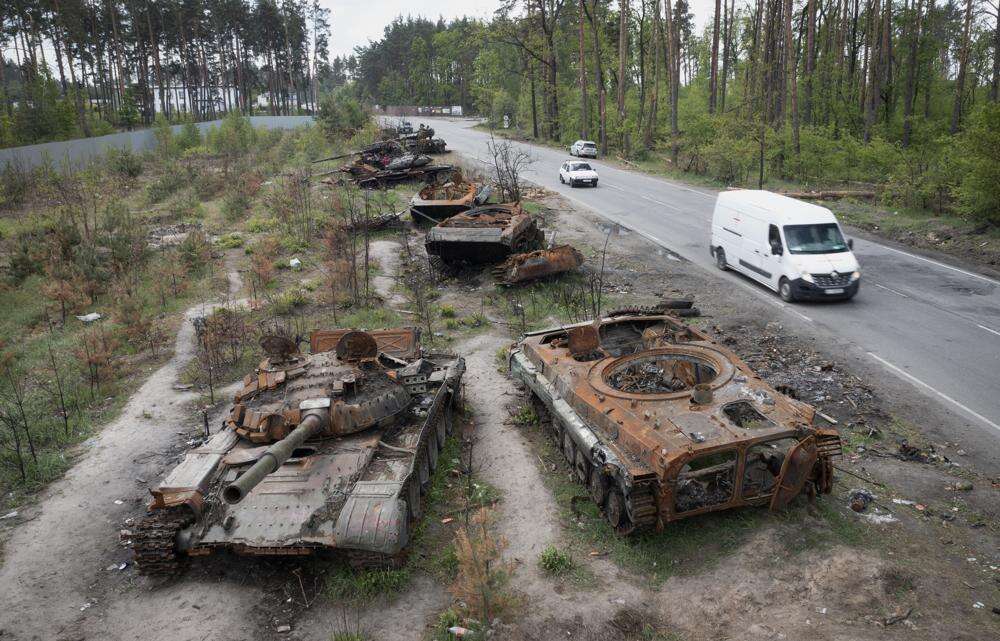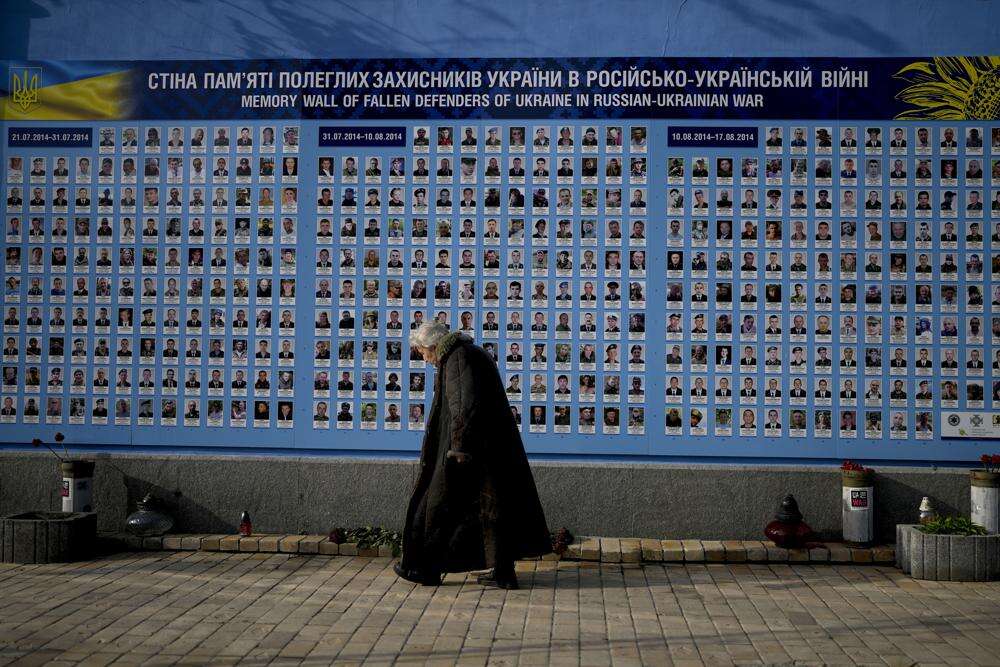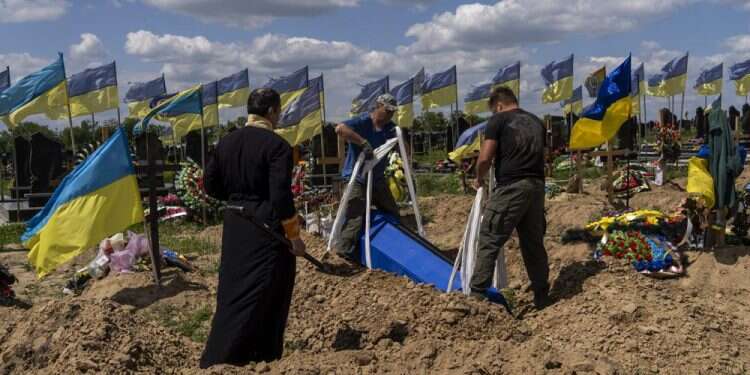Delegations from Sweden and Finland were scheduled on Wednesday to hold talks in Ankara with senior Turkish officials in an effort to overcome Turkey's objections to their historic bids to join the NATO alliance.
Follow Israel Hayom on Facebook, Twitter, and Instagram
Sweden and Finland submitted their written applications to join NATO last week in a move that marks one of the biggest geopolitical ramifications of Russia's war in Ukraine – and which could rewrite Europe's security map.
Turkey has said it opposes the two Nordic countries' membership in the military alliance, citing grievances with Sweden's – and a to a lesser extent Finland's – perceived support to the Kurdistan Workers' Party, or PKK, and other entities that Turkey views as a security threat. It also accuses the two of imposing arms export restrictions on Turkey and refusing to extradite suspected "terrorists."
The objections have dampened Stockholm's and Helsinki's hopes for their quick membership in NATO amid Russia's invasion of Ukraine and put the trans-Atlantic alliance's credibility at stake. All 30 NATO members must agree to admit new members.
The Swedish and Finnish delegations are poised to take up Turkey's grievances with Ibrahim Kalin, the spokesman of President Recep Tayyip Erdogan, and Turkish Deputy Foreign Minister Sedat Onal. The Swedish delegation would be headed by state secretary Oscar Stenström while Jukka Salovaara, the foreign ministry undersecretary, would lead the Finnish delegation, Turkish officials have said.
The PKK, which is listed as a terror organization by several of Turkey's allies, has waged a decades-long insurgency against Ankara, a conflict that has cost the lives of tens of thousands of people.
Erdogan this week listed five "concrete assurances" it is demanding from Sweden, including what it said was "termination of political support for terrorism," an "elimination of the source of terrorism financing," and the "cessation of arms support" to the banned PKK and a Syrian Kurdish militia group affiliated with it. The demands also called for the lifting of arms sanctions against Turkey and global cooperation against terrorism.
Turkey said that it has been requesting the extradition of Kurdish militants and other suspects since 2017, but hasn't received a positive response from Stockholm. Among other things, Ankara claimed that Sweden had decided to provide $376 million to support the Kurdish militants in 2023 and that it had provided military equipment to them, including anti-tank weapons and drones.
Sweden has denied that it was providing any "financial assistance or military support" to Kurdish groups or entities in Syria.
"Sweden is a major humanitarian donor to the Syria crisis through global allocations to humanitarian actors," Foreign Minister Ann Linde told the Aftonbladet newspaper.
"Cooperation in northeastern Syria is carried out primarily through the United Nations and international organizations," she said. "Sweden doesn't provide targeted support to Syrian Kurds or to the political or military structures in northeastern Syria, but the population in these areas is, of course, taking part in these aid projects."
Meanwhile, a regional governor in eastern Ukraine says that at least six civilians have been killed by the latest Russian shelling in a town at the epicenter of fighting three months into the war.
Luhansk region Governor Serhiy Haidai said Wednesday that another eight people have been wounded in the shelling of Sievierodonetsk over the past 24 hours. He accused the Russian troops of deliberately targeting shelters where civilians were hiding.

The town is located in Ukraine's eastern industrial heartland of Donbas, where the Russian forces have been pressing their offensive despite stiff Ukrainian resistance.
Moscow-backed separatists have fought Ukrainian forces in the Donbas for eight years and hold large swaths of territory. Sievierodonetsk and neighboring cities are the only part of the Donbas' Luhansk region still under Ukrainian government control.
Ukrainian President Volodymyr Zelenskyy said late Tuesday that the country's forces in the region faced a difficult situation.
"Practically the full might of the Russian army, whatever they have left, is being thrown at the offensive there," he said in his nightly address to the nation. "Liman, Popasna, Sievierodonetsk, Slaviansk – the occupiers want to destroy everything there."
In Mariupol, workers digging through the rubble of an apartment building found 200 bodies in the basement, Ukrainian authorities said on Tuesday, as more horrors come to light in the ruined city that has seen some of the worst suffering of the 3-month-old war.
The bodies were decomposing and the stench hung over the neighborhood, said Petro Andryushchenko, an adviser to the mayor. He did not say when they were discovered, but the sheer number of victims makes it one of the deadliest known attacks of the war.
Mariupol was relentlessly pounded during a nearly three-month siege that ended last week after some 2,500 Ukrainian fighters abandoned a steel plant where they had made their stand. Russian forces already held the rest of the city, where an estimated 100,000 people remain out of a prewar population of 450,000, many of them trapped during the encirclement with little food, water, heat, or electricity.
At least 21,000 people were killed in the siege, according to Ukrainian authorities, who have accused Russia of trying to cover up the horrors by bringing in mobile cremation equipment and by burying the dead in mass graves.
Zelenskyy accused the Russians of waging "total war" and seeking to inflict as much death and destruction as possible on his country.
"Indeed, there has not been such a war on the European continent for 77 years," he said, referring to the end of World War II.
In Kharkiv, Ukraine's second-largest city, there were signs of recovery after weeks of bombardment. Residents formed long lines to receive rations of flour, pasta, sugar, and other staples this week. Moscow's forces withdrew from around Kharkiv earlier this month, pulling back toward the Russian border in the face of Ukrainian counterattacks, though Russia continues to shell the area from afar, Ukrainian officials said Tuesday.
Galina Kolembed, the aid distribution center coordinator, said that more and more people are returning to the city. She said the center is providing food to over 1,000 people every day, a number that keeps growing.
"Many of them have small kids, and they spend their money on the kids, so they need some support with food," she said.
In the United States, the Treasury Department announced it would close the last avenue for Russia to pay its billions in debt back to international investors, making a Russian default on its debts for the first time since the Bolshevik Revolution all but inevitable.

It said it did not plan to renew the license that allowed Moscow to keep paying its debtholders through American banks.
Since the first rounds of sanctions, the Treasury Department has given banks a license to process any dollar-denominated bond payments from Russia. That window expires at midnight on May 25.
There had already been signs that the Biden administration was unwilling to extend the deadline. At a press conference heading into the Group of Seven finance minister meetings in Koenigswinter, Germany, last week, Treasury Secretary Janet Yellen said the window existed "to allow a period of time for an orderly transition to take place, and for investors to be able to sell securities."
"The expectation was that it was time-limited," she said.
Without the license to use US banks to pay its debts, Russia would have no ability to repay its international bond investors. The Kremlin has been using JPMorgan Chase and Citigroup as its conduits to pay its obligations.
The Kremlin appears to have foreseen the likelihood that the US would not allow Russia to keep paying on its bonds. The Russian Finance Ministry prepaid two bonds on Friday that were due this month to get ahead of the May 25 deadline.
The next payments Russia will need to make on its debts are due on June 23. Like other Russian debt, those bonds have a 30-day grace period – which would cause default by Russia to be declared by late July, barring the unlikely scenario that the Russia-Ukraine war would come to an end before then.
Investors have been almost certain of Russia going into default for months now. Insurance contracts that cover Russian debt have priced an 80% likelihood of default for weeks and rating agencies like Standard & Poor's and Moody's have placed the country's debt deep into junk territory.
Once Moscow defaults, the next likely step would be for Russia to turn to the US, British or European courts to argue that it was forced into default by circumstances beyond its control – a concept in finance known as force majeure – in an effort to restore its standing in global financial markets. It may be difficult to win that argument however, experts have said, due to the fact that Russia got cut off from financial markets because it chose to invade Ukraine.
In related news, Roman Abramovich's 19-year ownership of Chelsea is ending after the British government approved the sale of the Premier League club by the sanctioned Russian oligarch to a consortium fronted by Los Angeles Dodgers part-owner Todd Boehly.
The government had to be sure that Abramovich, who was sanctioned over his links to Russian President Vladimir Putin after the invasion of Ukraine, did not profit from the enforced sale of the club that his investment turned into one of the most successful in European football.
The reigning FIFA Club World Cup winners and 2021 European champions will be sold for 2.5 billion pounds ($3.1 billion) – the highest price ever for a sports team – with Premier League approval already granted on Tuesday.
Chelsea has been operating under a government license since Abramovich's assets were frozen in March and it expires on May 31.
"Given the sanctions, we placed on those linked to Putin and the bloody invasion of Ukraine, the long-term future of the club can only be secured under a new owner," British Culture Secretary Nadine Dorries said. "We are satisfied the proceeds of the sale will not benefit Roman Abramovich or other sanctioned individuals."
There were weeks of discussions between officials from Chelsea and the government over securing the guarantee Abramovich could not gain financially. The sale proceeds will initially go into a frozen account before going to charity.
"We will now begin the process of ensuring the proceeds of the sale are used for humanitarian causes in Ukraine, supporting victims of the war," the British government said in a statement. "The steps today will secure the future of this important cultural asset and protect fans and the wider football community."
Delays approving the sale centered on the fate of 1.6 billion pounds ($2 billion) loaned to Chelsea by Abramovich since 2003 that provided the funding to build a men's squad that won 21 trophies during his ownership. Government assurances were needed from Abramovich, who has not condemned Russia's war in Ukraine, about writing off the debt that was linked to companies he controlled.
Subscribe to Israel Hayom's daily newsletter and never miss our top stories!
Boehly has already started attending Chelsea games in recent weeks since the club approved the sale to the consortium that also features Dodgers principal owner Mark Walter, Swiss billionaire Hansjorg Wyss, and funding from private equity firm Clearlake Capital.
It was a hotly-contested sale process, with four groups in the final running, before Boehly's group was chosen on May 7 after guaranteeing 1.75 billion pounds ($2.2 billion) of investment in the team.
Chelsea fans have become accustomed to lavish spending under Abramovich, with more than $1 billion net spending on players.
Chelsea's ability to sell match tickets and commit to new player spending has been curbed by the sanctions but now the new ownership is set to provide investment to manager Thomas Tuchel to strengthen the squad.
The certainty is that Chelsea will be playing in the Champions League next season after finishing third in the Premier League last Sunday despite the off-field turmoil. The women's team won a league and cup double with a squad funded by Abramovich's investment.




